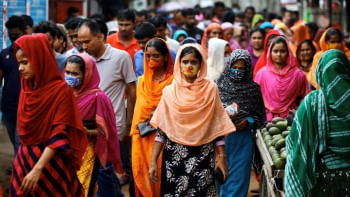WTO's services waiver for LDCs: between hope and doubt
During the eighth WTO Ministerial Conference held in Geneva in December 2011, WTO members adopted a waiver allowing developing and developed member states to provide preferential treatment to services and service suppliers of least developed country (LDC) members.
This waiver is claimed to benefit 31 LDC members of WTO, from the preferential treatment in those service sectors and modes of supply that are of particular interest to their economies.
A positive feature of this waiver is that any WTO member country providing preferential treatment under this scheme, must grant it immediately and unconditionally to similar services and service suppliers of all LDC members.
This should ideally mean that the waiver cannot be used to reward only a handful of LDC members for pursuing certain policies in their national governance or in exchange of support in some other international bodies.
This is a more direct and firm reference to non-discrimination among LDCs than what is provided for in the enabling clause of GATT, which deals with preferential treatment for developing and LDC members in trade in goods.
Hence, in an ideal scenario any WTO member offering market access under this waiver should not demand any compliance with any non-trade issue as a pre-condition for receiving the preferential treatment.
However, a close reading of the waiver would raise concerns as to how much real economic benefit it would confer on its supposed beneficiaries.
First and foremost, this waiver is neither a substantive right of LDCs nor an obligation imposed on developed and developing state members of the WTO.
Developed and developing member states may use the waiver to give preferential market access in traded services and service suppliers of LDCs only if they wish to do so. The special waiver would remain valid for 15 years.
However, this means that LDCs are dependent on the unilateral decisions of developed and the granting member can withdraw market access any time.
Hence, service suppliers of LDCs would suffer from the uncertainty in making any substantial long-term investment based on any preferential access offered under this waiver. The waiver also does not specify any method for determining the potential sectors of export interest to LDCs.
Hence, it is possible that the economic interest of the grantor would take precedence over the interest of LDC.
Another issue of concern is the narrow scope of the waiver. The waiver is only from the most favoured nation (MFN) obligation of the General Agreement on Trade in Services (GATS) and limited to the application of market access measures mentioned in its Article XVI.
Preferential treatment with respect to the application of measures other than those specifically provided for in Article XVI of the GATS can only be applied if expressly approved by the WTO Council for Trade in Services.
This waiver also does not provide for any specific obligation to offer market access in Mode 4, which in WTO parlance means the movement of natural persons across borders for providing services.
As many LDCs have surplus unskilled labour, they could have benefited substantially from such an obligation.
Interestingly, the waiver states that any preferential treatment to LDCs would not constitute a hindrance to the reduction of market access barriers on a MFN basis.
However, although as a matter of law this is understandable but as a matter of practice, this appears to be rather quixotic. This is because if LDCs are granted any market access under the waiver scheme, they will in all likelihood, lobby against MFN liberalisation in those sectors lest the exclusive benefit of their preferential access is lost.
As the beneficiaries of generalised system of preferences (GSP) stand in the way of MFN liberalisation in many goods out of the fear of preference erosion, the same is likely to be true for services.
In view of its restrictive scope and the lack of any concrete obligations to utilise the waiver, it is unlikely that this new GATS waiver for LDCs would enable the poorer members of the WTO to reap its full benefits.
This would be a shame as the WTO's trade liberalisation mandate is not an end itself; but means to an end that includes the economic development of LDCs.

 For all latest news, follow The Daily Star's Google News channel.
For all latest news, follow The Daily Star's Google News channel. 



Comments